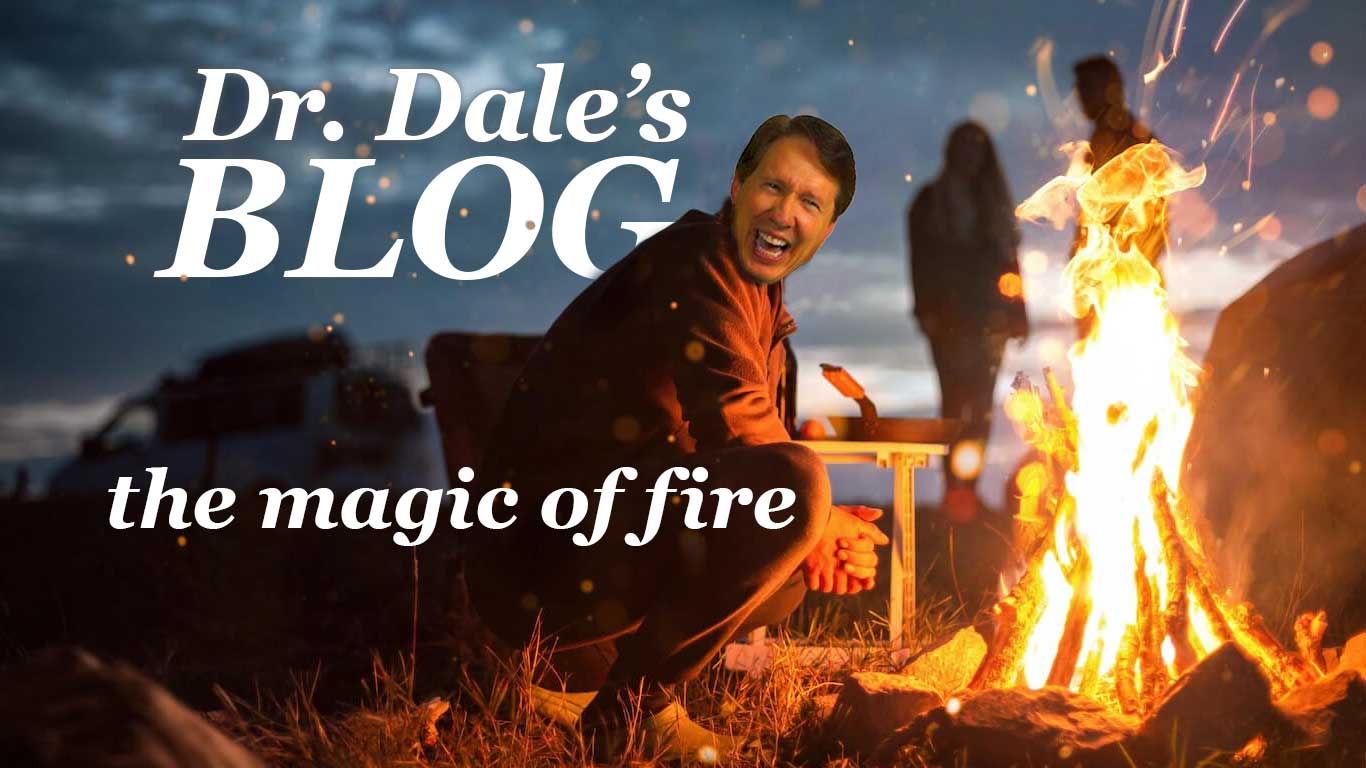empowerment, leadership
The Magic Of Fire
My dad was an outdoorsman. I don’t mean he lived in Alaska and hunted bear, but if he could have, he would have. He was a natural born salesman, but he loved to fish and hunt, more than some people love to eat and breathe. Like a good friend of mine, Clinton Fox, my dad was a relationship salesman. Dad spent every waking hour, outside of work, either on the lake or in the woods. His name was Alfred Henry, and if I were to sum him up on one word, it would be Fire. My dad loved to live the sporting life. I don’t remember my dad doing anything other than working, fishing, and hunting–or getting ready to go do those things. He was a good-looking guy and he believed in dressing the part. His shoes were always shined, clothes pressed, and he always took care of himself. He was what I call a 50’s guy.
When I was young, we would go out on the lake and establish a camp on the bank. I’m talking about a tent, cooking tent, and all the accoutrements. We had fishing equipment, boat, and equipment to jug fish (look it up if you are not southern). He would get everything set up and then he would look at me and say, “Pete. you are in charge.” (Ok, this is a good place to explain why he called me Pete…)
My dad did not like my name! My grandmother was given the right to name all first born grandchildren. When she was young, she had a young friend that drowned, and his name was Mayford. My birth name is Mayford Dallas Henry. My dad called me Pete! My mother called me Mayford! My friends called me Dale! The first time my wife, who was my girlfriend at the time, met my dad he said, “Hey Pete!”, “Mayford, your mom wants you in the kitchen.”, “Did you and Dale have a good ride over this morning?” My girlfriend thought there was something wrong with my dad. To him it made sense; he just had me compartmentalized. To him, I was Pete. To Mom, I was Mayford. To Debra, I was Dale.
After setting up camp, I would start gathering firewood. My job was to cook, and keep the fire going. If you haven’t figured it out yet, I hate fishing. But I loved organizing and taking care of my dad. As the evening wore on and it would start to get late, I would cook (more appropriately, I would warm up what my mom and grandmother cooked) so everyone could eat. There would be eight or nine of us fishing, so I had a big job. My main job, however, was to keep the fire going. On the lake, you can’t see your surroundings, so the fire would give you coordinates to where you were and where the camp was located. I would not only have a fire, but a campfire. You could see it for miles on the open water. I had forgotten about this time in my life until recently, when my wife and I were at our home in McKenzie, Tennessee sitting by our fire pit, enjoying our warm fire.
This responsibility as a child made me into the young person and man I would become. I think, in a way, all of us are fire makers and fire watchers. Leadership requires us to not only keep up the tasks we are responsible for but, to show others the way. Here are some tips to help you be a fire starter or fire watcher:
1. Give those you lead the opportunity to use their talents.
The best leaders step aside and allow others on their team to do what they do best. Control leads to compliance, but giving power leads to engagement, and, in return, unleashing potential leadership greatness.
2. Give them permission to burn themselves.
Make sure your team knows it’s better to fail than to succeed at being mediocre. If you are going to create great teams, coach those you lead to realize that mistakes are part of the learning process, and they have the power to turn you into something better than you thought possible.
3. Guide them to work together toward gathering the right wood.
Working toward a common vision is the beginning of progress for any team, and a sure sign that they’re on the road to success. When your team learns to work together and not as a group of individuals pulling in different directions, things start to find meaning. It’s amazing what you can accomplish when you work together toward a shared, compelling vision.
4. Show up as the leader and develop leaders within others.
As the leader, you’ll find that your own habits ripple out to your team. So show up as a leader and lead by example. They will do what they see, not what you say. Make sure that what you say matches with what you do. Then, take the next step by encouraging your team to step into their own leadership. Give every team member the ability to move into a suitable leadership role by empowering, collaborating, and encouraging them.
5. Give them what they need to feel and be successful.
There’s a simple way to find out what your team needs: ask them. You may not always be able to give them everything they want, but you can always work hard to make sure they have everything they need.
6. Create an environment where people do what they love.
Everyone performs better when they are able to relax and are having a good time. Fun is the element that allows people to make it through the difficult tasks and overwhelming deadlines, and the best leaders know how to make it work without compromising the team’s work ethic or commitment to excellence.
7. Trust, but verify.
Be the kind of leader people can trust to follow through on everything you say. Great leaders know they need to develop a reputation of being true to their word. It tells others they can count on you and shows the kind of behavior you expect. Then, follow up–not to point out mistakes, but to show them you care.
8. Be decisive and purposeful.
Decisions need to be made on a constant basis, and thriving teams with great leaders know how to act decisively and with purpose. Growth and success are contingent on determined action; procrastination and perfectionism will consistently slow everything down. The best leaders have the confidence to stand alone, the courage to make tough decisions, and the compassion to listen to the needs of others.
9.Teach them that everything is hard before it’s easy.
Encourage your team to persist until something happens. Remember that they will never know their limits until they’re pushed to the edge. Great leaders know that when you push people to their limits, you are teaching them to always go further. When you exceed your limits enough, you realize that there really are no limits.
10. Earn their respect and give them yours.
The way to unleash greatness in your team is to both show them respect and give them reason to respect you. Mutual respect is critical to any team, so set an example by treating everyone you encounter with respect.
My dad taught me that responsibility was key to everything in life. Thanks for the fire that you put in me, Dad!



